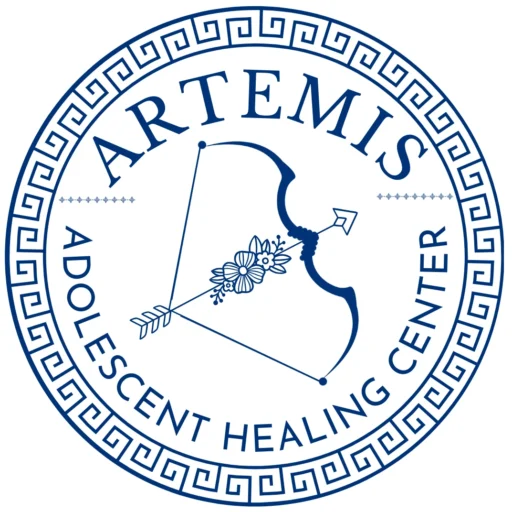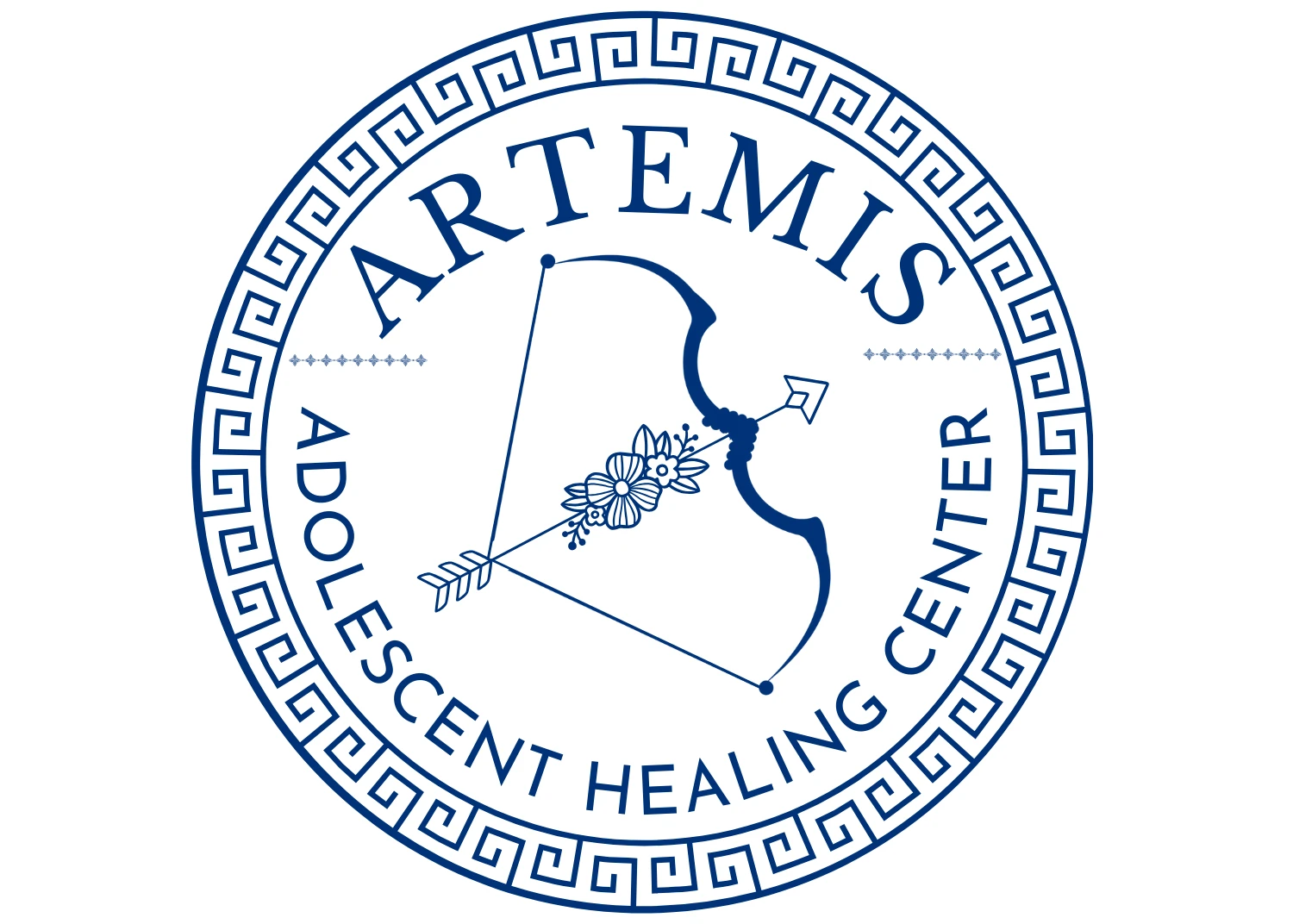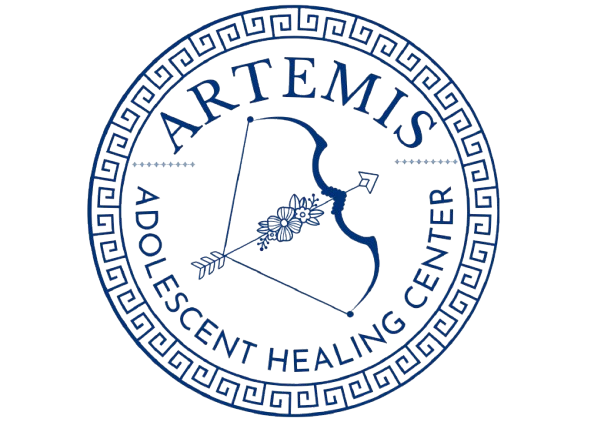Comprehensive Eating Disorder Treatment at Artemis
An eating disorder can quickly spiral into a dangerous situation with physical and mental health consequences. Teen bulimia treatment is a critical step to intervene in this progression and provide a new path forward.
This page will get deep into the details of bulimia nervosa and how it affects teens.
Keep reading to learn more about bulimia treatment for teens and adolescents and the most effective, evidence-based approaches to treat this form of disordered eating.
When you are ready to work with a treatment team to address the eating disorder that is impacting you or a loved one, Artemis Adolescent Healing Center will be happy to take your call. Reach out now to find the ideal eating disorder treatment for your needs.
Get Confidential Eating Disorder Assessment
What is Bulimia?
Bulimia nervosa is one of many eating disorders that can impact teens. The pattern exhibited in bulimia is one of cycles. These cycles move back and forth between binge eating and purging.
Individuals struggling with bulimia nervosa will commonly consume large amounts of food in a single sitting. This binge is often followed by some type of action that will attempt to compensate for the indulgent eating. That could mean self-induced vomiting, long periods of fasting, excessive exercise, or misusing laxatives.
Bulimia nervosa is considerably different than anorexia, although they are often discussed together. Both are eating disorders, but those with anorexia severely limit their food intake and struggle to maintain a normal weight. Individuals with bulimia nervosa are often able to maintain a normal weight. Or, they will stay within a relatively normal weight range for their height.
That doesn’t mean bulimia nervosa is safe or healthy, however. It comes with many of the same symptoms and risks as anorexia nervosa. Family members who are concerned something is wrong with their teen’s relationship with food should seek help right away to intervene before the problem gets worse.
Physical Symptoms of Bulimia
The fact that many teens with with bulimia nervosa symptoms are able to maintain a healthy weight can make it difficult for parents to spot symptoms of this eating disorder. With that said, there are physical symptoms that can be spotted by paying careful attention and by talking to your teen about their health.
- Chronic sore throat and hoarse voice from repeated vomiting
- Puffy face as a result of swollen salivary glands
- Worn-down enamel on teeth due to stomach acid exposure
- Frequent gastrointestinal distress, including bloating and constipation
- Fatigue, dizziness, and fainting spells
Your teen may not be forthcoming about their physical health problems and the underlying bulimia nervosa. That’s why it’s important to watch for any symptoms that arise so you can ask the right questions and consider eating disorder treatment if you determine that something is wrong.
Behavioral and Emotional Symptoms

Bulimia is not just a physical illness. A common mistake for parents facing this situation with their teen is thinking that their eating habits need to be corrected and then everything will be back on track.
That’s not how it works. Binge eating and other eating disorders are rooted in emotional and psychological distress. Proper disorder treatment is going to be as much about the mental and emotional side of the equation as it will be about learning healthy eating habits.
If your teen is engaging in binge eating and purging, some of the behavioral symptoms below may be exhibited.
- Preoccupation with body shape and weight
- Intense fear of gaining weight
- Acting secretive around food, or disappearing after meals
- Expressing feelings of guilt, shame, or disgust after eating
- Dramatic mood swings, anxiety, and depression
Secrecy is where bulimia nervosa can thrive. When everything’s out in the open, you can engage with your teen about the reality of the situation and the signs of mental illness that may be hiding just below the surface. Once your teen understands that you want to help, they may be more receptive to eating disorder treatment.
The Impact of Bulimia on Teen Health
The teenage years are critical for physical and emotional development. Many changes are occurring during this time in both the body and mind that will set up the individual for their adult years to come.
Bulimia can interfere with the necessary developments of this period of life. Due to all of the problems associated with bulimia nervosa that we highlighted above, a teen could experience long-term harm to their physical and emotional health that is difficult to repair.
Working with a professional treatment team can help turn things around as quickly as possible. The teenage years go by quickly and the longer that bulimia remains a problem, the more damage it is going to do.
Whether your teen needs a residential treatment program, outpatient family-based treatment, or something in between is yet to be seen. What is sure is that as soon as you realize that bulimia may be an issue, there is no time to waste.
Recognizing the Need for Help

Bulimia is often harder to identify than anorexia nervosa. With anorexia nervosa, the typically low body weight of the affected teen immediately gives away the fact that something is wrong.
A teenager struggling with bulimia may still have a healthy weight and may exhibit relatively normal eating patterns. While it might not be immediately obvious on the surface that something is wrong, taking a closer look and watching for certain patterns or behaviors can help you get to the bottom of it.
Signs Your Teen May Have Bulimia
Take note if you notice any of these signs as they could point to bulimia in your teenager.
- Frequent trips to the bathroom after meals
- Unexplained use of laxatives, diet pills, or diuretics
- Exercising compulsively to the point of exhaustion, or continuing to exercise while injured
- Evidence in the house of binge eating, such as hidden food containers
- Weight fluctuations going up and down significantly in a short time frame
You don’t want to ignore these signs or just write them off as no big deal. Talk to your teen about what you are seeing and work together to create a plan for the future. Even if it turns out that your teen is not dealing with bulimia, you can create a closer relationship by talking about their mental health and supporting them through whatever challenges they are facing.
Get Accredited Treatment Programs at Artemis
The Dangers of Ignoring Bulimia
There is significant damage that can be inflicted on the life of a young person dealing with bulimia. These harms will tend to get worse over time as the eating disorder continues, so prompt intervention is always critical.
- Electrolyte imbalances can lead to heart failure
- Chronic digestive issues can develop including acid reflux and IBS
- Severe depression and increased risk of suicide
- Infertility and hormonal imbalances in adulthood
The damage that this disorder can do is far too serious to ignore or brush off. Helping your teen overcome this challenge and get on the road to recovery can be a life-changing process.
Turning to a Bulimia Treatment Program

The first step in dealing with all eating disorders is acknowledging that there is a problem. It might be difficult to reach this point with your teen, but it’s important to be persistent while also supportive and understanding.
Once the barrier is crossed and the reality of the disorder is out in the open, there are many different types of treatments that can be used to turn things around.
Therapy and Counseling Approaches
Therapy is likely to play a key role in the recovery process. Using therapy sessions is important because it can allow your teen to get to the underlying causes of the disorder.
Cognitive behavioral therapy is one of the leading therapy options for bulimia. This technique is designed to identify negative thought patterns and replace them with more accurate, balanced, positive perspectives on the world. Other options include dialectical behavioral therapy and interpersonal therapy.
Family-Based Therapy and Support
Most treatment programs that address teen bulimia will want to involve the teen’s family to some degree. Establishing a supportive environment at home is critical to lasting recovery.
Family based treatment usually includes therapy sessions and other activities that are performed together. There are also support groups for parents and siblings to better understand the disorder and receive emotional support during the healing process.
Take a Holistic Approach to Recovery
Healing the whole person is how ongoing recovery can be achieved. It’s more than just treating the specific symptoms that arise as a result of bulimia.
Holistic recovery can take on many different forms and will look different for each individual. Nutritional counseling is a logical starting point. It may also be helpful to utilize stress management techniques like yoga and meditation.
Lasting Recovery – Avoiding a Disordered Eating Relapse

There is always the threat of relapse when it comes to bulimia. This is why aftercare is so important. Getting through a treatment program is an excellent first step but it can’t be seen as a finish line.
As mentioned above, long-term recovery starts with a healthy and steady support system. When a teen feels supported and loved at home, it’s easier to avoid falling back into the patterns that led to this disorder in the first place.
It’s also important for the teen to learn what triggers pose a risk of relapse so those can be managed effectively when they do arise. The real world can be a difficult place and life won’t just be smooth sailing after bulimia treatment is provided. Knowing how to negotiate the ups and downs without returning back to this disorder is a vital component of long-term success.
Up To 100% of Rehab Costs Covered By Insurance
Find Proven Support for Healing Bulimia at Artemis
It’s easy to downplay the seriousness of bulimia nervosa. You might tell yourself that it isn’t that serious. Or that you can stop these behaviors at any time. Don’t keep deceiving yourself while the problem gets worse.
The Artemis Adolescent Healing Center is here to help. Call today to talk about our eating disorder treatment services and to get answers to any questions you may have about our services.
Eating disorders should never be downplayed and the need for medical care is urgent in these cases. We know it’s not an easy call to make, but it can change your teen’s life for the better starting now.
All calls are confidential, so please reach out now to get options for support at Artemis.






